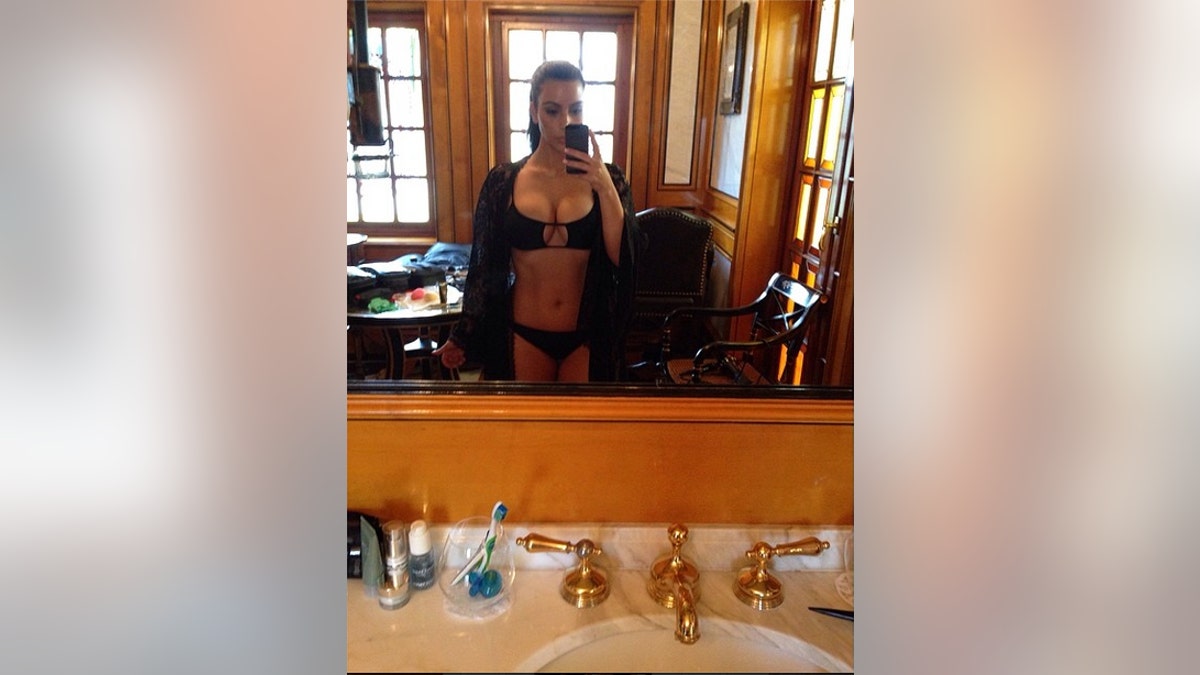
(Credit: Kim Kardashian, Instagram)
Selfies. Whether you love them or you hate them, they’re constantly flooding our social media feeds.
For women it’s often about being seen as sexy or looking glamorous. But why?
Well, researchers have figured it out. And the reason is not what you might think.
University of New South Wales researcher Khandis Blake says the next time you see a woman adjusting her bikini provocatively with her phone at the ready, don’t think of her as vacuous or a victim.
“Think of her as a strategic player in a complex social and evolutionary game,” says Dr. Blake said.
The study revealed women tend to sexualize themselves in environments with greater economic inequality, rather than where they might be oppressed because of their gender.
Analyzing tens of thousands of social media posts across 113 countries, they tracked photos where people had taken selfies and then noted that they were tagged sexy, hot or similar.
“We then looked at where in the world these things happened most,” Dr Blake explains.
“The number one way that psychologists usually look at women’s preoccupation with their appearance is that it happens because of patriarchal pressures — that women live in societies that value their appearance more than their other qualities.
“The argument is usually that when you see sexualization, you see disempowerment.
“What we found instead is that women are more likely to invest time and effort into posting sexy selfies online in places where economic inequality is rising, and not in places where men hold more societal power and gender inequality is rife.”
The researchers say the findings are consistent across different geographic locations, even after taking into account and controlling for other factors that could influence patterns, like population size, human development and internet access.
They say income inequality increases competitiveness and status anxiety among people at all levels of the social hierarchy, making them sensitive to where they sit on the social ladder and wanting them to do better than others.
“That income inequality is a big predictor of sexy selfies suggests that sexy selfies are a marker of social climbing among women that tracks economic incentives in the local environment,” Dr Blake says.
“Rightly or wrongly, in today’s environment, looking sexy can generate large returns, economically, socially, and personally.”
The researchers then found the exact same pattern in real-world spending in other appearance-enhancing areas.
“What we found in more than 1000 different economic areas in the US when looking at women’s spending in beauty salons and clothing stores is that income inequality is also predicting this type of spending,” Dr Blake says.
The researchers say that the findings make sense from an evolutionary point of view.
“In evolutionary terms, these kinds of behaviors are completely rational, even adaptive,” he says.
“The basic idea is that the way people compete for mates, and the things they do to put themselves at the top of the hierarchy are really important. This is where this research fits in — it’s all about how women are competing and why they’re competing.
“So, when a young woman adjusts her bikini provocatively with her phone at the ready, don’t think of her as vacuous or as a victim. Think of her as a strategic player in a complex social and evolutionary game. She’s out to maximize her lot in life, just like everyone.”
This story originally appeared in news.com.au.
